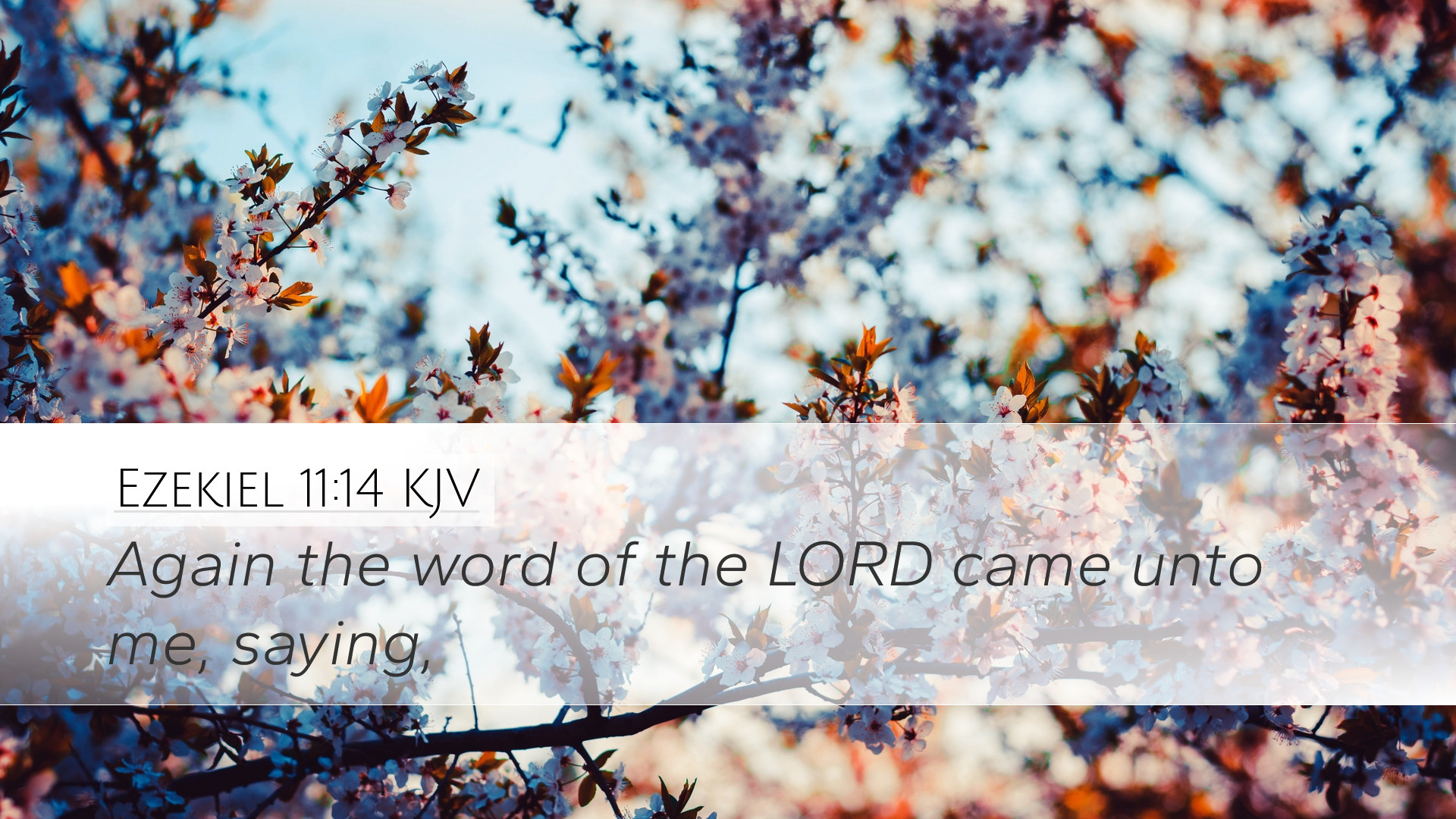Bible Commentary on Ezekiel 11:14
Ezekiel 11:14: "And the word of the LORD came unto me, saying,"
Introduction
The Book of Ezekiel, penned by the prophet Ezekiel during Israel's exile in Babylon, captures profound messages about judgment, restoration, and the sovereignty of God. Ezekiel 11:14 serves as a pivotal verse that frames the prophetic discourse surrounding the people's captivity and God's assurances for their future. This commentary synthesizes insights from renowned public domain commentaries, elucidating the rich theological intentions behind this verse.
Historical Context
Ezekiel’s ministry emerged at a time of great turmoil for Israel. The people were facing the consequences of their persistent rebellion against God, culminating in the destruction of Jerusalem and the Temple. In this context, God speaks through Ezekiel not only to pronounce judgment but also to reassure the exiles of His enduring covenant and the eventual restoration of Israel. Albert Barnes emphasizes the significance of the direct communication from God, showcasing the divine authority and urgency of the prophetic message.
The Divine Voice
God's Communication: The phrase "the word of the LORD came unto me" highlights the personal interaction between God and the prophet. This divine address underlines that Ezekiel is not merely voicing his own opinions or thoughts; he is articulating God's will for His people. Adam Clarke notes that such declarations are critical, for they reinforce the prophet's role as a spokesman of divine truth in a time of great distress.
Theological Implications
The verse calls attention to the themes of judgment and hope, intertwining them to provide a holistic view of God's plan for Israel.
- Judgment: Ezekiel draws attention to the people's sins which had led to their current exile. This serves as a reminder that disobedience to God's commandments incurs significant consequences.
- Hope: Even in proclaiming judgment, God extends an olive branch of hope to His people. The message that follows is one of encouragement—God has not abandoned them, nor will He forsake His covenant promises.
Judgment and Mercy
In the subsequent verses of Ezekiel 11, God's proclamation reveals a dual message of judgment against those who rebel and mercy towards those who are humble and contrite. Matthew Henry articulates that even amidst severe chastisement, God's nature remains compassionate, providing avenues for repentance and restoration. The prophet thus serves as a mediator of both divine wrath and divine grace.
Application for Today’s Believers
Ezekiel 11:14 offers timeless applications for contemporary believers. Pastors and theologians can draw from the insights of this verse to teach about divine communication, the nature of God, and the importance of heeding His word. The economic and emotional turmoil faced by individuals today echoes the plight of the Israelites, providing a rich tapestry for discussion on God’s presence amidst suffering.
- The importance of listening to God: Just as Ezekiel received clear direction from God, believers today are called to cultivate a sensitivity to His voice.
- The nature of God’s justice and mercy: Understanding that God's judgments are always served alongside His merciful intentions can transform the approach of believers to their own shortcomings and encourage others towards repentance.
Conclusion
Ezekiel 11:14 exemplifies the profound connection between God and His people. It serves as a reminder that even in our darkest moments, we are never outside the reach of God’s voice and His promises. Through this commentary, we recognize the rich theological dimensions of the scripture, inspiring pastors, students, and scholars to delve deeper into the nuances of God's word and their implications for daily living.


